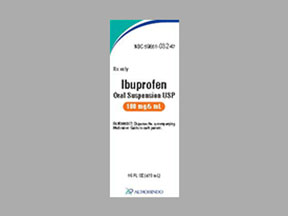
Childrens Motrin Coupons & Savings Card – Discount Prices from $6.93
Brand for: Ibuprofen
My prescription
Edit
118ML of 100MG/5ML, Ibuprofen (1 Bottle)
Select pharmacy

CVS
$21.72
COUPON PRICE
Walmart
$6.93
COUPON PRICE
Albertsons
$8.72
COUPON PRICE
Walgreens
$8.81
COUPON PRICEChildrens Motrin savings card
Show this card to your pharmacist
Walmart
$6.93
BIN
ID
PCN
GRP
019876
LH439F32C5
CHIPPO
LHX
Powered by
More prescriptions for rheumatoid arthritis
More prescriptions for rheumatoid arthritis
Childrens Motrin (Ibuprofen) dosage forms
Dosage Quantity Price from Per unit 118ML of 100MG/5ML 1 Bottle $6.93 $6.93 118ML of 100MG/5ML 2 Bottles $11.35 $5.67 118ML of 100MG/5ML 3 Bottles $15.78 $5.26 118ML of 100MG/5ML 4 Bottles $20.21 $5.05 118ML of 100MG/5ML 5 Bottles $24.64 $4.93
| Dosage | Quantity | Price from | Per unit |
|---|---|---|---|
| 118ML of 100MG/5ML | 1 Bottle | $6.93 | $6.93 |
| 118ML of 100MG/5ML | 2 Bottles | $11.35 | $5.67 |
| 118ML of 100MG/5ML | 3 Bottles | $15.78 | $5.26 |
| 118ML of 100MG/5ML | 4 Bottles | $20.21 | $5.05 |
| 118ML of 100MG/5ML | 5 Bottles | $24.64 | $4.93 |
Is Motrin or Tylenol better for kids?
The choice between Motrin (ibuprofen) and Tylenol (acetaminophen) for children depends on the specific situation and the child's needs. Both medications are effective for reducing fever and relieving pain, but they work differently.- Motrin (Ibuprofen): It is an anti-inflammatory medication, which can be beneficial if the child has inflammation-related pain, such as from an injury. It is generally recommended for children over 6 months of age.- Tylenol (Acetaminophen): It is often recommended for younger children and is effective for pain and fever relief. It is suitable for children of all ages, including infants.Parents should consider factors such as the child's age, weight, medical history, and any specific recommendations from a healthcare provider. It is important to follow dosing instructions carefully and consult a pediatrician if there are any concerns or questions.
What is children's Motrin used for?
Children's Motrin is used to relieve pain and reduce fever in children. It is commonly used to alleviate symptoms such as headaches, toothaches, sore throats, and minor aches and pains associated with the common cold or flu. Additionally, it can help reduce inflammation and discomfort from conditions like sprains or strains.
What does Motrin for kids help with?
Motrin for kids is used to help reduce fever and relieve minor aches and pains, such as those associated with the common cold, flu, sore throat, headaches, and toothaches. It contains ibuprofen, which is a nonsteroidal anti-inflammatory drug (NSAID).
Can children's Motrin make you sleepy?
Children's Motrin, which contains ibuprofen, is not known to cause drowsiness or make one sleepy. It is a nonsteroidal anti-inflammatory drug (NSAID) primarily used to reduce fever and relieve pain or inflammation. If drowsiness occurs, it may be due to other factors or medications. It's always best to consult a healthcare professional if there are concerns about side effects.
